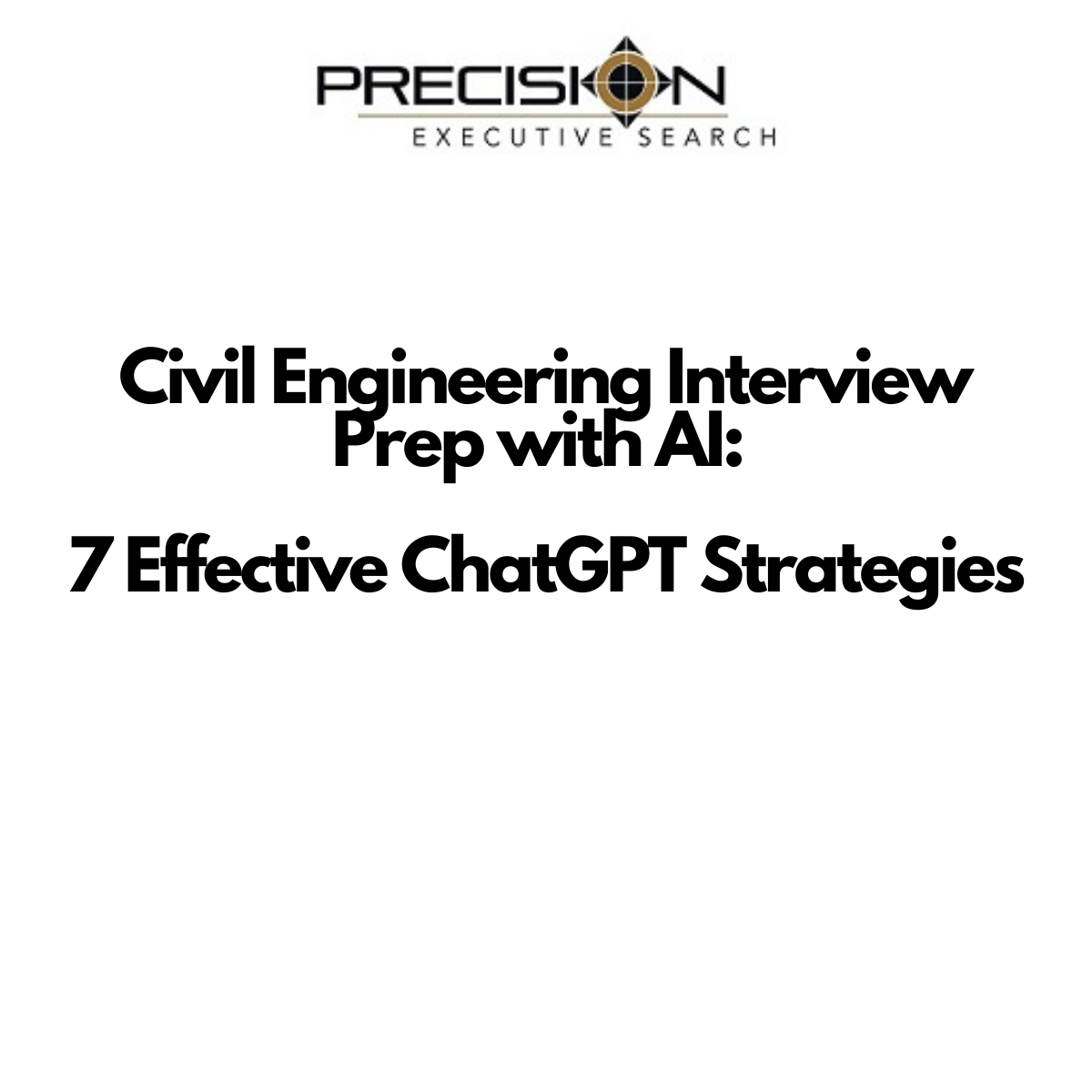
04 Nov Civil Engineering Interview Prep with AI: 7 Effective ChatGPT Strategies
If you’re a civil engineer gearing up for your next interview, you already know the technical side is important – but so is how you present yourself, your problem-solving mindset, and how you’ll fit into the team. The good news? AI tools like ChatGPT can give you a serious edge. Here are seven ways to use them effectively (and authentically) in your interview prep.
1. Analyze the job description and uncover key skills
Paste the job description into ChatGPT and ask: “What are the top skills this employer is looking for?” This helps you identify what to emphasize in your responses. AI tools can surface the language companies use – so you can mirror that language when you talk about your achievements.
For example: if the posting emphasizes “bridge design, load-calculations and site-coordination”, you’ll want to bring forward your experience in those exact terms.
2. Generate role-specific interview questions
Ask: “Give me 10 interview questions for a mid-level civil engineer focusing on structural design.” Then practice answering them. You’ll see questions that align with both behavioral and technical topics.
You might get: “Tell me about a time you discovered a major code violation during construction. What did you do?” or “How do you approach load path analysis for an irregular building footprint?”
3. Conduct a mock interview
Have ChatGPT act as the interviewer: ask your questions, give your answers, then ask the tool for feedback. This builds confidence and helps you polish delivery, structure and clarity.
Tip: record yourself or use the “type your answer” style, then refine based on feedback.
4. Refine your answers and storytelling
Copy-paste your draft answer (for example: “Describe a challenging infrastructure project you worked on”) into ChatGPT and ask: “How can I make this answer stronger, more concise and more impactful?” AI can help you improve storytelling – clear structure, stronger verbs, quantification.
But be sure you still own the story thought – this should be used as a GUIDE, not a script!
5. Research the company + role quickly
Use AI to summarize the company’s projects, values and recent news. Then you’re prepped for one of the key interview questions: “What interests you about working here?” According to career services guidance, AI is a strong support here but you must verify key facts yourself.
For example: “I saw your firm recently completed the XYZ highway expansion and you emphasize sustainable materials – my experience with use of recycled concrete aggregate aligns with that.”
6. Prepare thoughtful questions to ask the interviewer
Interviews are two-way. Use AI to brainstorm smart questions like:
- “How does this firm handle peer review during the design-development phase?”
- “What challenges do you foresee in the permit-approval process for your upcoming municipal infrastructure projects?”
ChatGPT can help you generate and refine these based on the role and company context.
By asking informed questions, you demonstrate your interest and strategic thinking – especially important for civil engineers.
7. Manage the “soft” but critical stuff
Beyond engineering chops, interviewers will evaluate communication, collaboration, culture-fit. Use AI to simulate behavioural questions, e.g.: “Tell me of a time when a subcontractor missed a critical milestone — how did you respond?” Then refine your answer. Also get suggestions for follow-up thank-you emails.
Make sure you stay genuine. AI helps generate ideas – you bring the authenticity.


No Comments